Iran Calls New EU, UK Sanctions ‘Baseless’

Iran has dismissed sanctions imposed this week by the United Kingdom and the European Union against Iranian individuals and entities claiming they are “baseless”.

Iran has dismissed sanctions imposed this week by the United Kingdom and the European Union against Iranian individuals and entities claiming they are “baseless”.
Foreign Ministry Spokesperson, Nasser Kanaani called the new round of sanctions “illegal and interventionist.”
He also added that the European parties have lost their “rationality” as such a “wrong approach” would restrict their “scope of interactions.”
Kanaani also threatened that Tehran will take countermeasures against such actions based on its national interests.
The European Union sanctioned 29 Iranians and three entities Monday over what it said was human rights violations related to suppression of ongoing protests.
A statement issued in Brussels, where foreign ministers met, said the move was over “their role in the death of Mahsa Amini and the violent response to the recent demonstrations in Iran.”
Germany’s Foreign Minister Annalena Baerbock told reporters that the new sanctions would “send a clear message to those who think they can suppress, intimidate and kill their own people without consequences.”
Britain also slapped a new round of sanctions on 24 Iranian officials who played a role in cracking down on protests after the death of Mahsa Amini in police custody.
In a press release on Monday the United Kingdom announced the “sanctions target officials within the Iranian regime who are responsible for heinous human rights violations.”
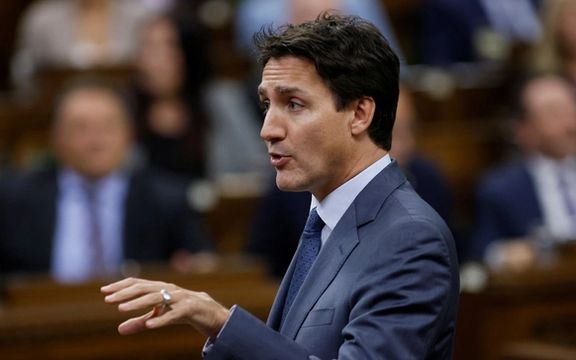
Canada's government has announced senior officials of the Islamic Republic have been officially banned from entering Canadian soil.
Minister of Public Safety of Canada, Marco Mendicino, in a news release on Monday said Canada has designated the Islamic Republic of Iran as a regime that has engaged in “terrorism and systematic and gross human rights violations.”
“This means that tens of thousands of senior members of the Iranian regime, including many members of the IRGC, are now inadmissible to Canada,” added Mendicino.
The list of senior officials encompasses a wide array of individuals in a regime that stands accused of perpetrating crimes against the people of Iran and other nations.
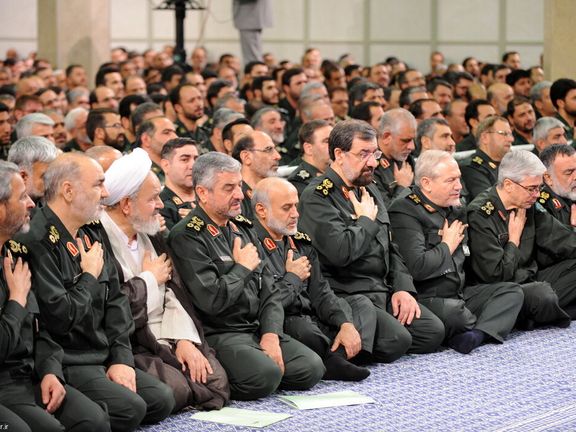
According to the Canadian government, heads of state, members of the Cabinet, ambassadors, senior diplomats, members of the judiciary, senior military and intelligence officials and senior public servants are included in the list.
“In addition to being banned from entering Canada, current and former senior officials present here may be investigated and removed from the country,” added the press release.
Mendicino, further noted that “Ottawa is taking decisive action by designating the Iranian regime and its most senior officials including the IRGC … and the consequences will be severe.”
He said this is the strongest sanction imposed on the Iranian regime yet, reiterating “we will continue to stand up for women’s rights and fight for justice on behalf of the families of PS752. Canada will be a beacon for human rights around the world.”
Ukraine International Airlines Flight PS752 was a scheduled international civilian passenger flight from Tehran to Kyiv, operated by Ukraine International Airlines. On 8 January 2020, it was shot down by the IRGC shortly after takeoff, killing all 176 passengers and crew aboard.
Meanwhile, Canada's Minister of Immigration, Refugees and Citizenship, Sean Fraser also asserted in a similar statement that senior officials of the Iranian regime and the IRGC are inadmissible to Canada.

“Canada is a country that many have come to in search of a safer and more prosperous future for them and their loved ones. Canada has a vibrant Iranian population, some of whom fled oppression in the past, and we are determined to take the most effective steps to keep them and all Canadians safe,” added Fraser.
Fraser went on to say that Iranian officials’ actions are reprehensible, and their views have no place in Canadian society.
In another development, Canada’s Prime Minister Trudeau in a tweet slammed the brutality of the Iranian government, saying “Canada denounces the Iranian regime’s barbaric decision to impose the death penalty on nearly 15,000 protestors.”
Expressing support for the Iranian protesters, Trudeau underscored that “the brave Iranians were fighting for their human rights – and we continue to stand united in support of them, and united against the regime’s heinous actions.”
The nationwide uprising, largely led by women, has seen daily protests in cities across Iran calling for an end to rule by hardline clerics in the aftermath of the death of a 22-year-old woman, Mahsa Amini, in the custody of morality police in September.
Back in October, Canada announced sanctions against Iran’s Revolutionary Guard (IRGC), permanently banning over 10,000 of its officers from entering Canada.
At the time, Trudeau said Canada has had designated Iran's IRGC leadership, adding that “we will restrict financial transactions with the Islamic Republic of Iran associated with the IRGC and the proxies that support them. These actions are some of the strongest measures anywhere against Iran.”
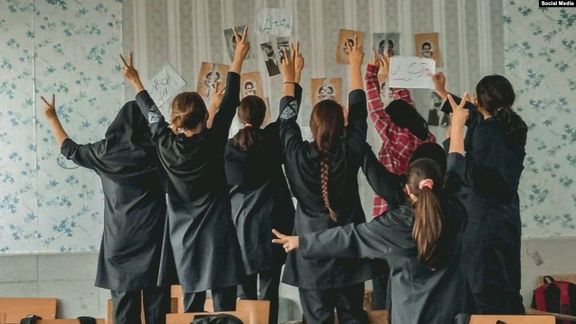
Leading reformist figures in Iran have recently made statements that reveals their interest in preserving the status quo despite popular protests aimed at changing the political system.
In several articles over the past weeks, reformist commentators expressed concern that the situation is going toward a revolution while they claimed the nation wanted only to reform the system and warned that a dramatic change may lead to undesirable uncertainty.
On November 14, two reform figures, former President Mohammad Khatami and former vice president Massoumeh Ebtekar broke their silence after more than 8 weeks about a possible demise of the regime and voiced their opposition to dramatic changes in the Iranian political system.
Khatami, revealed his opposition to regime change by saying that it was "neither possible, nor desirable." Nonetheless, he warned that if the current state of affairs continues, the ground is paved for a looming social collapse.
Khatami called on the regime "to reform itself," but at the same time acknowledged that "a large part of the society shares the protesters' dissatisfaction" of the current political system.
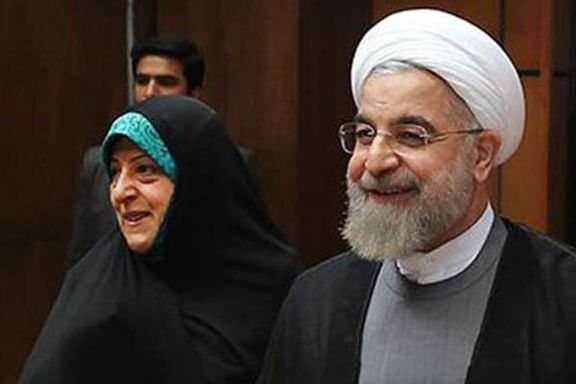
On the same day, Ebtekar said in a commentary in the reformist daily Etemad in Tehran, "The new generation of Iranians believes it is not only the Iranian government, but the entire Iranian political system that is inefficient."
She added, "The Iranian government has been lagging behind the society for several years now. By not recognizing natural social developments, the Iranian government has created the current crisis for itself."
Ebtekar said elsewhere in her commentary: "the Iranian state television and other organizations with hefty government budgets which are responsible for keeping the public informed have failed to listen to young Iranians and their demands." She added that "Unfortunately, many religious and propaganda organizations deny the pluralism that exists in Iranian society and wish to dictate whatever that serves their interests."
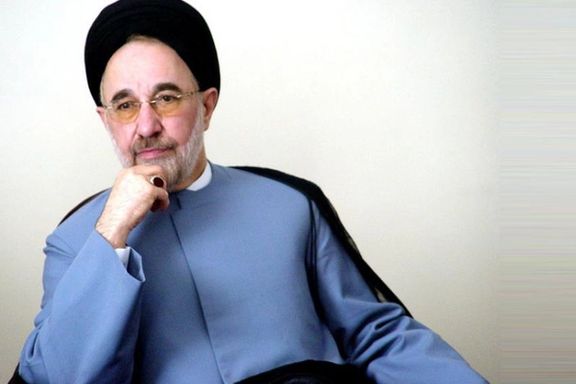
The new generation that has grown up with the Internet and social media, believes to be a citizen of the world and cannot tolerate the traditional guidelines, Ebtekar said, adding that this has created a generational gap in Iran.
In an article carried by Etemad newspaper, Iranian American author and sociologist Asef Bayat wrote in a response to reformist commentator Abbas Abdi who had opposed regime change and expressed concern that the current protests might lead to a tragic end for Iranian society, "The tragedy of reformism in Iran is that Iranian reformists cannot further any reforms because they have been pushed out of the power circle, and at the same time they cannot agree with radical changes in Iran because by definition they are reformers and not revolutionaries."
Bayat wrote that "individuals like Abdi fear the cost of a revolution. They fear violence, instability and damage to the country's infrastructure. Ordinary people are also afraid of the cost of a revolution, but they risk everything when they see that all roads to reform are blocked.
"However, some people talk about the risks involved in a revolution as though the current situation is risk-free like a paradise," Bayat said adding that the costs of the current situation include an average 20 percent inflation, high unemployment particularly among educated Iranians, high recession in the 2010s, the collapse of the middle class and pushing 45 percent of the population under the poverty line, destruction of the country's environment and many of its villages, and the decline of Iranians' status in the world because of the government's adventurist policies.
Bayat argued that Mahsa Amini, the young woman murdered in custody of morality police, the workers in Assalouyeh oil and gas fields and millions of Iranian men and women are being constantly humiliated, losing their hopes and their lives. But those who have chosen not to submit to this gradual death have taken collective action to change the status quo.
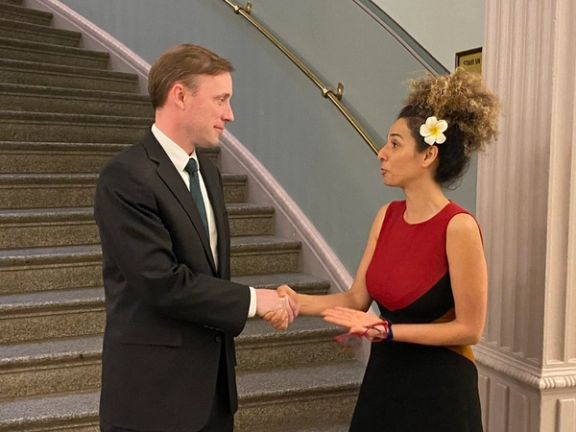
Iran and China hired private investigators to spy on opposition figures living in the United State, the New York Times reported Sunday.
The NYT said that authoritarian regimes like the Islamic Republic and China increasingly hire detectives to “surveil, harass, threaten and even repatriate dissidents living legally in the U.S.”
Law enforcement officers have told the Times that during the past two years several complaints have been filed in which private investigators, “mostly unwittingly,” were involved in such schemes in different states.
In one case, the New York-based investigator Michael McKeever,71, received a request on his website to track down a debtor who had fled from Dubai to Brooklyn. However, when McKeever started his task by surveilling a house and taking photos of the people coming and going, the FBI warned him that his clients are “bad people and are up to no good.”
At this point McKeever realized he had been used by the intelligence agents of the Iranian regime to kidnap Masih Alinejad, a well-known Iranian-American activist who has been criticizing Iran’s human rights abuses.
“We were afraid they were going to look to snatch and grab her, bring her home and probably kill her,” said James E. Dennehy, the former head of the FBI’s counterintelligence and cyber division in New York, who now runs the bureau’s Newark office.
The report also reveals some other cases in which PIs unwittingly were used by Chinese agents to set up espionage networks, often focusing on national security targets or on individual dissidents.
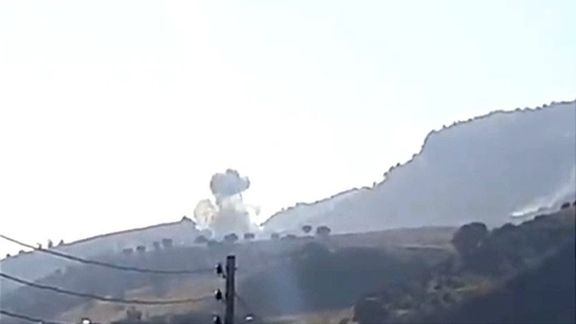
Iran’s Revolutionary Guard’s latest round of shelling of Iraqi Kurdistan region has drawn condemnation by Western countries as well as the Iraqi government.
In a Monday phone call with his Iranian counterpart Hossein Amir-Abdollahian, Iraqi Foreign Minister Fuad Hussein decried the attacks as a violation of Iraq's sovereignty, saying that the continuation of such unilateral measures is "dangerous".
Moreover, Kurdistan Region Prime Minister Masrour Barzani also condemned the “violations” of Iraq and its Kurdish region’s sovereignty, following IRGC’s attacks on the headquarters of Iranian-Kurdish groups, some of which are armed.
According to Iran International’s correspondent, the RGC targeted the main base of the Democratic Party of Iranian Kurdistan (PDKI) in capital Erbil and Komala in Sulaymaniyah with drones and missiles.
The PDKI said a senior party member and a Peshmerga militiaman were killed and several other Peshmerga forces injured in the Monday attacks.
The Canadian Embassy in Iraq, the US Consulate General in Erbil, the UN Assistance Mission for Iraq (UNAMI) and the German Consulate General in Erbil have so far condemned the renewed attacks on the Kurdistan Region.
The German Consulate-General in Erbil said that Berlin urges Iran to respect the territorial integrity and sovereignty of Iraq. “The attacks have to stop immediately,” it said.
Since the current wave of protests began in Iran following the death in custody of young Iranian Kurdish woman Mahsa (Jina) Amini, the Islamic Republic has intensified its attacks on Kurdish dissident groups based in Iraqi Kurdistan, apparently aimed at intimidating the Kurds. In addition to PDKI and Komala, IRGC launched artillery and suicide drone attacks against positions of other Kurdish groups opposed to the Islamic Republic such as Parti Azadi Kurdistan, aka PAK (Kurdistan Freedom Party).
The US also strongly condemned Iran’s “violations of Iraqi sovereignty”, calling on the Islamic Republic to stop attacking its neighbor and the people of Iraq. “We stand with the Iraqi government’s leaders in Baghdad and the Iraqi Kurdistan region,” the Consulate General in Erbil said on its twitter account.
“Iraq should not be used as an arena to settle scores and its territorial integrity must be respected,” UN Assistance Mission for Iraq said, adding that “Dialogue between Iraq and Iran over mutual security concerns is the only way forward.”
Amini was from the Kurdish town of Saqqez and was arrested and beaten during a visit to Tehran. After her death in hospital, her hometown and other Kurdish cities were the first to launch antigovernment protests.
Late in October, the Iranian Army's Ground Force also launched a three-day war game around the northwestern town of Piranshahr in West Azarbaijan province bordering Iraqi Kurdistan.
Iran’s last barrage of missile and drone strikes against the groups in September led to the death of 14 people, including women and children, and wounding of 58 other people near Erbil and Sulaymaniyah.
The Islamic Republic calls the Kurdish armed groups in the western provinces of Iran, "terrorist groups" or "anti-revolutionary" but these groups say that the goal of their armed campaign is "defending the rights of the Kurds".
Generally, the Kurdish parties − including Komala and the KDPI − favor Kurdish autonomy within a federal Iran.

Britain has slapped a new round of sanctions on 24 Iranian officials who played a role in cracking down on protests after the death of Mahsa Amini in police custody.
In a press release on Monday the United Kingdom announced the “sanctions target officials within the Iranian regime who are responsible for heinous human rights violations.”
British Foreign Secretary James Cleverly stated that by these sanctions the UK and its partners have sent a “clear message” to the Iranian regime that “the violent crackdown on protests must stop and freedom of expression must be respected.”
The Foreign Secretary expressed that Britain designates Iran’s Communications Minister Issa Zarepour as well as a number of law enforcement agents and IRGC officials who ordered and been involved in the clampdown on demonstrators.
The British foreign office further noted that Chief of Iran’s Cyber Police, Vahid Mohammad Naser Majid, will be targeted due to the internet shutdown and “disabling WhatsApp and Instagram, and banning the use of the Google Play app and virtual private networks (VPNs).”
Governor of Sistan and Baluchestan as well as Kordestan have also been sanctioned due to massacre of 80 people on September 30 in Zahedan and heavy crackdown on Kurdish protesters.
The name of Chief of Tehran Police could also be seen in the list. Hossein Rahimi is sanctioned for using live rounds and tear gas against students at Sharif University in Tehran.
The sanctions include asset freezes and travel bans.
Meanwhile, the European Union also approved a new round of sanctions Monday against 29 individuals and three entities with asset freezes and travel bans.